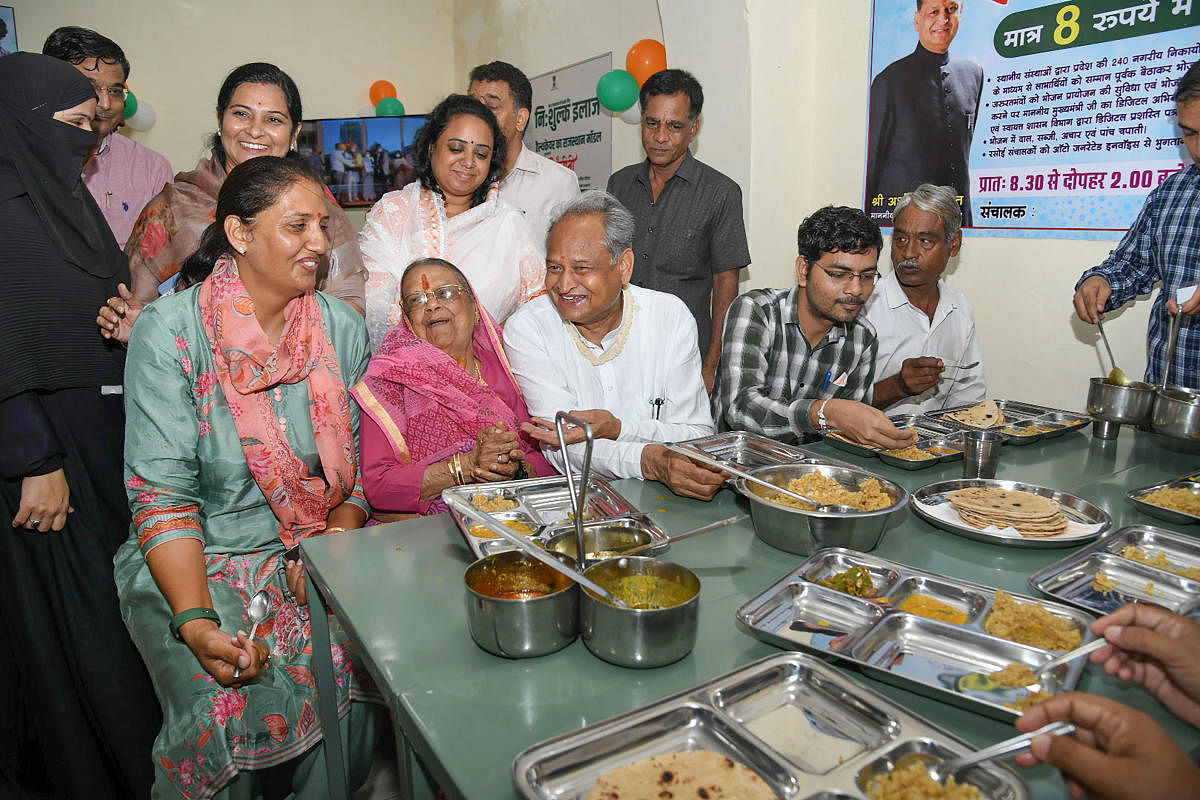
On Thursday, Chhattisgarh Chief Minister Bhupesh Baghel kick-started the ‘Chhattisgarhiya Olympics’, a multi-sport event to celebrate traditional Indian sports, by trying his hand at ‘gilli danda’ and ‘bati’ (marbles).
The sporting festival will continue until January 6, with competitive events in 14 traditional sports. On October 15, Baghel will release the third instalment of the Rajiv Gandhi Kisan Nyaya Yojana to the state’s farmers.
In April, the Chhattisgarh chief minister inaugurated a ‘Nehru Memorial Park’ in Bastar to commemorate Jawaharlal Nehru’s inaugural address at the third tribal conference in March 1955, which was held at the same venue.
In Rajasthan, the only other Congress-led government in the country, the Ashok Gehlot government revived ‘Indira Rasoi’, or canteens, last month, which offer cooked food at an affordable price of Rs 8.
In mid-September, Gehlot inaugurated the ‘Rajiv Gandhi Rural Olympics’, saying that his government will hold the block-level sporting event every year.
On October 2, the Rajasthan government notified the setting up of the Department of Peace and Non-violence to spread Mahatma Gandhi’s message, including communal harmony.
In Chhattisgarh, the Baghel-led Congress government is busy constructing eight huge statues of Lord Ram (25-feet-tall on a 16-foot pedestal) across the state by June 2023. Baghel inaugurated a 51-feet statue of Lord Ram last year as part of the Ram Van Gaman Path project.
After a scheme to purchase cow dung from farmers, the Congress government launched another to buy cow urine in July.
The Congress is also implementing a plan to mark the centenary of the Seva Dal, its volunteer organisation, founded by N S Hardikar in 1923.
The Seva Dal’s formation had preceded that of the Rashtriya Swayamsevak Sangh (RSS) by two years, but it now lies ignored. In the run-up to the 2018 Assembly polls in Madhya Pradesh, the Seva Dal held 35 camps, and some party leaders believe these contributed to the Congress’ improved performance.
The Congress governments in Rajasthan and Chhattisgarh, and its state unit in Karnataka, are at the forefront of an effort to reflect the rootedness of the party to India’s tradition and customs, revive the memory of some of the party’s icons and reinvigorate its commitment to Gandhian principles.
Party strategists had long felt that the Congress, under the onslaught of the BJP’s criticism of dynastic politics, had become defensive about owning up to its iconic leaders, including those from the dynasty.
“We need to spell out our ideological moorings, particularly on India’s cultural traditions and economic policy,” a party leader, associated with the process to engage with the wider civil society, said.
The Congress believes it can only fight the BJP-RSS’ ideological propaganda and institutional spread with a counter-narrative based on Gandhian principles. The Bharat Jodo Yatra symbolises the high-minded Gandhian tenets and personal sacrifice as Congress leader Rahul Gandhi and his Bharat Jodo Yatris will traverse 3,750 km on foot.
“Just as Gandhiji fought the British Raj, we are today embarked on a battle with the very ideology that killed Gandhi,” a statement by Rahul read on October 2, the birth anniversary of the Mahatma.
Rahul visited a Khadi cooperative in Badanavalu village near Mysuru, where production began in 1932. “The Mahatma came to this village in 1927 and again in 1932. He had helped set up this cooperative,” Congress’ general secretary and in-charge of communications Jairam Ramesh tweeted.
The yatra’s response in Tamil Nadu, Kerala and Karnataka has made the party leadership upbeat. “To gauge the impact of the yatra, let us not go by our own claims but how our political rivals have responded,” a former Congress MP said.
He pointed out that neither Kejriwal, his party, nor the BJP-RSS leadership is talking about the yatra, not anymore, not even criticising it.
“Kejriwal had launched his ‘make India number one mission’ around the same time as the launch of the Congress’ yatra. It has now been quietly shelved,” the leader said.
However, several in the party hope the yatra would reconnect the top Congress leadership with the people, giving it the clarity that it desperately needs to effectively communicate its ideological positions to the common people on crucial issues.
These include profit-making versus profiteering, job generation and the role of small scale industries, the importance of public assets for performing public good and, above all, cultural rootedness.
Social and cultural policies
In that context, Baghel and Gehlot’s social and cultural policies reflect the churn in the party to move away from its leftward shift to reoccupy its centre-left perch.
The two chief ministers welcoming investments from the Adani Group, party leaders say, should be looked at from the prism of an effort to dispel misgivings in the corporate world about the party’s leftward shift.
“As Rahul Gandhi said on Saturday, we are not against a particular corporate group or business, but we are steadfast that we will not tolerate monopolisation, crony capitalism and the increasing disparity,” the leader said.